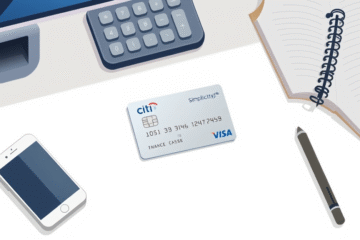Essential Credit Card Guide for Beginners
Credit cards are powerful financial tools that can help individuals manage their finances and build a solid credit history.
As a beginner, understanding how to effectively use credit cards is essential for long-term financial health.
In this article, we will explore key concepts such as choosing the right credit card, understanding credit limits, the importance of on-time payments, and much more.
By equipping yourself with the right knowledge and habits, you can navigate the world of credit cards confidently and responsibly, ultimately enhancing your financial well-being.
Understanding Your First Credit Card
A credit card is a financial tool that allows you to borrow money from the card issuer up to a predetermined limit.
Unlike a debit card, which withdraws funds directly from your bank account, a credit card enables you to make purchases with borrowed money that you can pay back later.
By understanding the fundamental differences explained in resources like Chase’s credit limit guide.
Understanding this is relevant as managing your credit limit effectively can increase financial health.
Exceeding your credit limit can lead to significant issues such as declined transactions or over-limit fees.
Avoid these setbacks by staying mindful of your spending.
Regularly check your account balance online or through a mobile app to ensure you remain under the ceiling, and consider setting up account alerts to receive notifications when approaching your limit.
Maintaining this diligence not only helps in preventing extra fees but also encourages responsible credit usage, which is Really really strong in establishing a good credit history.
Staying Current with Payments
Paying your credit card bills on time is a vital habit, particularly for beginners in managing their finances.
Timely payments help in building a strong Payment history, considered the most crucial factor in determining your credit score.
When you consistently pay on time, it reflects positively, enhancing your creditworthiness and making you more appealing to lenders.
On the other hand, late payments can drastically harm your credit score, often staying on your record for up to seven years, as noted by Experian.
Moreover, delaying payments can lead to Late fees and increased interest rates, which can quickly add up, making your debt more costly over time.
Decoding Interest Rates and Fees
Understanding credit card interest rates and fees is crucial for beginners.
The APR or Annual Percentage Rate is the interest charged on any unpaid balance, which kicks in only if you carry a balance beyond your due date.
It’s important to know that this rate can vary greatly between cards.
Common credit card fees might include late payment fees for missing a payment deadline, annual fees for the privilege of holding a particular card, and cash advance fees for borrowing cash using your credit card.
Here’s a clear overview of these fees:
| Fee | What it means |
|---|---|
| Late payment | A charge for not paying your credit card bill on time |
| Annual fee | A yearly charge for using the card |
| Cash advance | A fee for withdrawing cash with your credit card |
To reduce costs, focus on paying off your balance in full each month to avoid interest charges.
Moreover, choose a card with no annual fee if you don’t expect to use it frequently.
More importantly, always read the terms carefully when considering features like APR.
For further insights, explore detailed guides hosted by platforms like The Motley Fool and others.
Building Smart Credit Habits
Building smart credit habits can pave the way to a healthier financial future.
Understanding the essentials of credit card management ensures that beginners can avoid common pitfalls and leverage their credit power effectively.
can be a valuable starting point for learning these habits.
Start by embracing these relevant steps to manage credit wisely:
- Pay your balance in full each month to avoid high interest fees
- Keep your credit utilization below 30% to ensure your credit score benefits as noted by NerdWallet
- Set up automatic payments to ensure on-time payments and prevent late fees
- Review your monthly statements to detect errors or fraudulent charges early
- Limit the number of credit cards you open to maintain control over your finances
Consistency in following these habits will ensure you build a solid credit foundation
.
Avoiding Debt Pitfalls
Understanding the potential pitfalls of credit card usage is crucial for beginners aiming to maintain financial health.
One of the most insidious traps is Only paying the minimum required each month.
This practice not only extends the time needed to clear the debt but also accumulates substantial interest, turning modest charges into burdensome debt over time.
Failing to pay the full balance might seem like a short-term relief, but it can quickly spiral into an overwhelming financial obligation.
Seeing a growing balance despite regular payments is a warning sign that should prompt immediate action like consolidating debts or seeking financial assistance.
Moreover, without vigilant financial monitoring, it’s easy to fall prey to overspending, especially when reward programs or introductory offers on credit cards create the illusion of saving money.
Seeing frequent overdraft notices or facing increased interest rates are signs you might be heading towards financial trouble.
To prevent these situations, beginners can benefit from credit counseling services, which provide strategies for managing debt and maintaining a healthy credit profile.
Recognizing these warning signs early and taking precautionary steps such as creating a budget and tracking expenses help safeguard against the dangers of credit card debt.
Using Credit Cards to Strengthen Your Finances
Credit cards, when used responsibly, can significantly enhance your financial health by helping you build a solid credit history and earn valuable rewards.
Make on-time payments every month to demonstrate reliability to credit bureaus and boost your credit score.
Additionally, keep utilization below 30 percent to show that you are not over-relying on credit, a crucial factor in credit scoring models.
Taking advantage of rewards programs can further benefit your finances, as many credit cards offer cashback, travel points, and other perks that add value to your purchases.
By following these strategies, you not only strengthen your credit profile but also enjoy bonuses that contribute to a more secure financial future.
For more guidance on using credit cards wisely, refer to helpful resources such as Capital One’s Guide on Building Credit, which offers in-depth advice for beginners.
Credit cards can be beneficial when used wisely.
By following the guidelines outlined in this article, beginners can establish responsible credit habits that pave the way for a secure financial future.



0 Comments